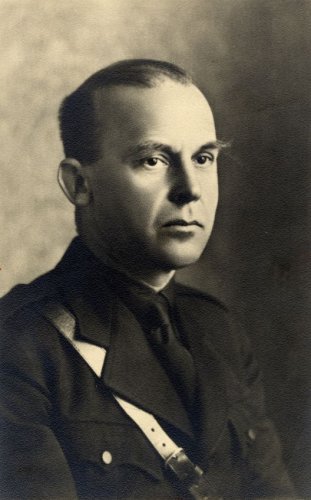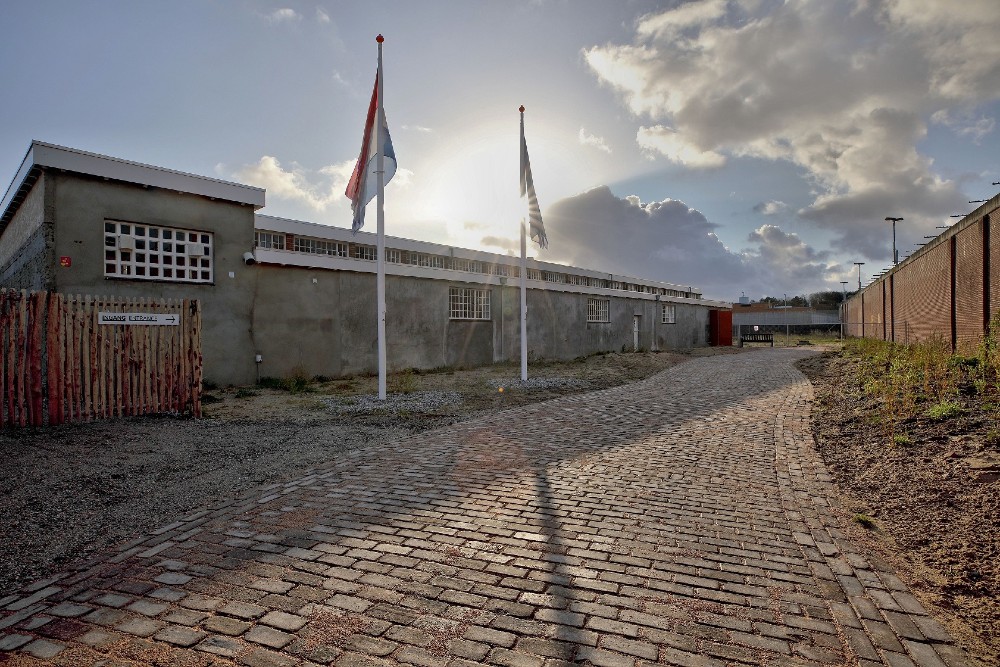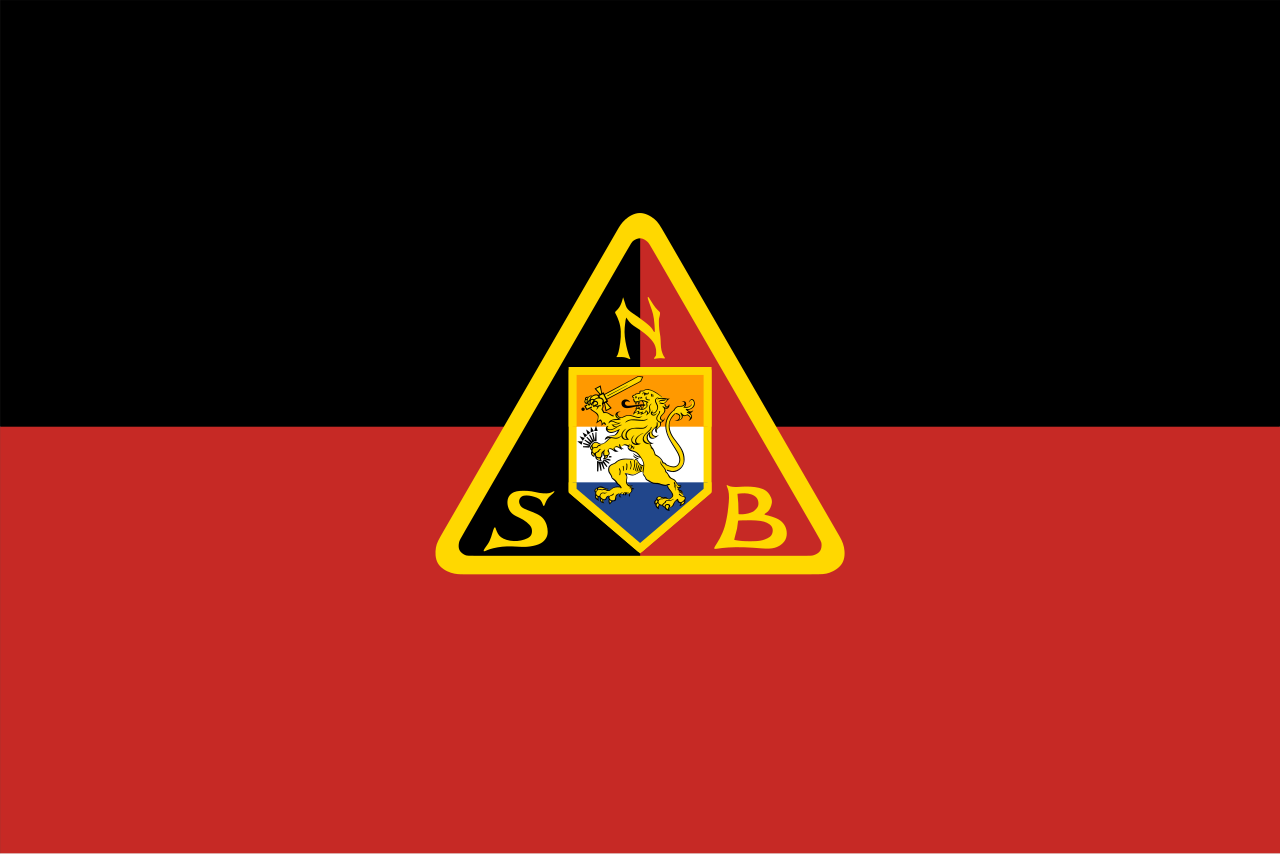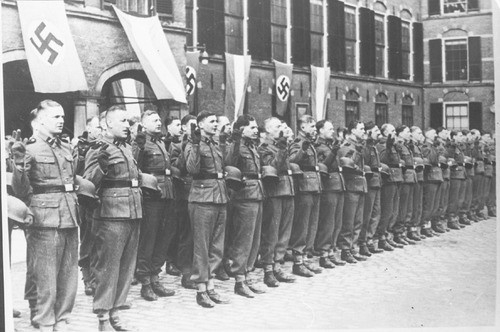Rost van Tonningen, Meinoud Marinus
- Date of birth:
- February 19th, 1894 (Soerabaja/Java, Dutch Indies)
- Date of death:
- June 6th, 1945 (Scheveningen prison/Zuid-Holland, Netherlands)
- Buried on:
- Dutch War Graves Den Haag
- Service number:
- 76000 (NSB)
- Nationality:
- Dutch
Biography
Meinoud Rost van Tonningen was born in 1894 in the Dutch East Indies. His father served as a KNIL officer under Johannes Van Heutz. In 1909, Meinoud came to the Netherlands, but was unsuccessful during his first 10 years in the country. His studies in Delft failed and his career as an officer also came to nothing. That period was therefore considered "lost" by Rost van Tonningen. In 1921, he began studying law in Leiden, but even after completing it, he was unable to find a job for a while. Eventually, he was appointed as a representative of the League of Nations in Vienna, where he had to supervise Austria's financial policy. It was here that he first came into contact with fascism. After the murder of Engelbert Dollfuss in 1934, he became a convinced National Socialist:
"I became a National Socialist by witnessing the heroic titanic struggle of the Austrians and reading "Mein Kampf" in one single night".
In 1936, he resigned from his diplomatic post in Vienna and returned to the Netherlands, where he not only joined the NSB, but also played a key role as editor-in-chief of the "Natonale Dagblad". In the movement, he adopted an anti-Semitic and anti-clerical stance and ensured that Jews were no longer allowed to become members of the NSB.
In 1939, he met his second wife Florentine Sophie (Florrie) Heubel, who would later become best known for her nickname: The Black Widow. The couple married on 21 December 1940. They had three sons.
Rost van Tonningen went to the Lower House for the NSB and was appointed commissioner for Marxist parties in the summer of 1940. Under his leadership, the Communist Party of the Netherlands (CPN) and the Revolutionary Socialist Workers' Party (RSAP) were dissolved and the Social Democratic Workers' Party (SDAP) was 'purged' of Marxist elements. His attempt to win over socialist elements to the national socialist ideology failed due to the strong attraction of the Dutch Union to the Dutch worker.
On 26 March 1941, Rost van Tonningen was appointed secretary-general for Special Economic Affairs and president of De Nederlandsche Bank. He also founded the Dutch East Company in 1942.
In the summer of 1944, Rost van Tonningen was trained as a Waffen-SS officer in the first battalion of Landstorm Nederland.
Rost van Tonningen fled on Mad Tuesday (5 September 1944), but returned after a few days. He was dismissed by Mussert as deputy leader of the NSB on 28 December 1944. The reason was his statements about the transition from the Jeugdstorm to the Germanische Jugend.
In March 1945, SS-Obersturmführer Rost van Tonningen left with the Landstorm Nederland to the front in the Betuwen and subsequently taken prisoner of war by the Canadians on 8 May 1945. He committed suicide (presumably) on 6 June 1945 by throwing himself over the balustrade in the staircase of the Scheveningen prison from the first floor.
His political power as a national socialist remained limited, partly due to his 'Indisch' blood, but mainly due to his constant power struggle with Mussert and other NSB leaders. He once presented himself as the "Eurasian prince", but during the occupation he was looked down upon mainly because of his "unworthy blood mixture". He was therefore refused membership of the SS.
Do you have more information about this person? Inform us!
- Awarded on:
- September 22nd, 1936
- Awarded on:
- February 1939
FOSD 2854/551386-7
"On February 2, 1939, Graf Tech von Burkersroda expressed his agreement with a proposal submitted by the Personal Department of the Auswartige Amt to nominate Rost for the award of the Memorial Medal for the Anschluss of Austria." Later there is a mention that Rost received the medal from Hitler.
- Period:
- Second World War (1939-1945)
Mentioned as recipient of the 5-year badge in a letter from Mussert to Rost.
Sources
- - BARNOUW, D., Rost van Tonningen : Fout tot het bittere eind, De Walburg Pers, 1994.
- De Volkskrant, 06-06-1967
- FOSD 2854/551386-7
- Correspondentie van Mr. M.M. Rost van Tonningen, deel 1
- CABR files







